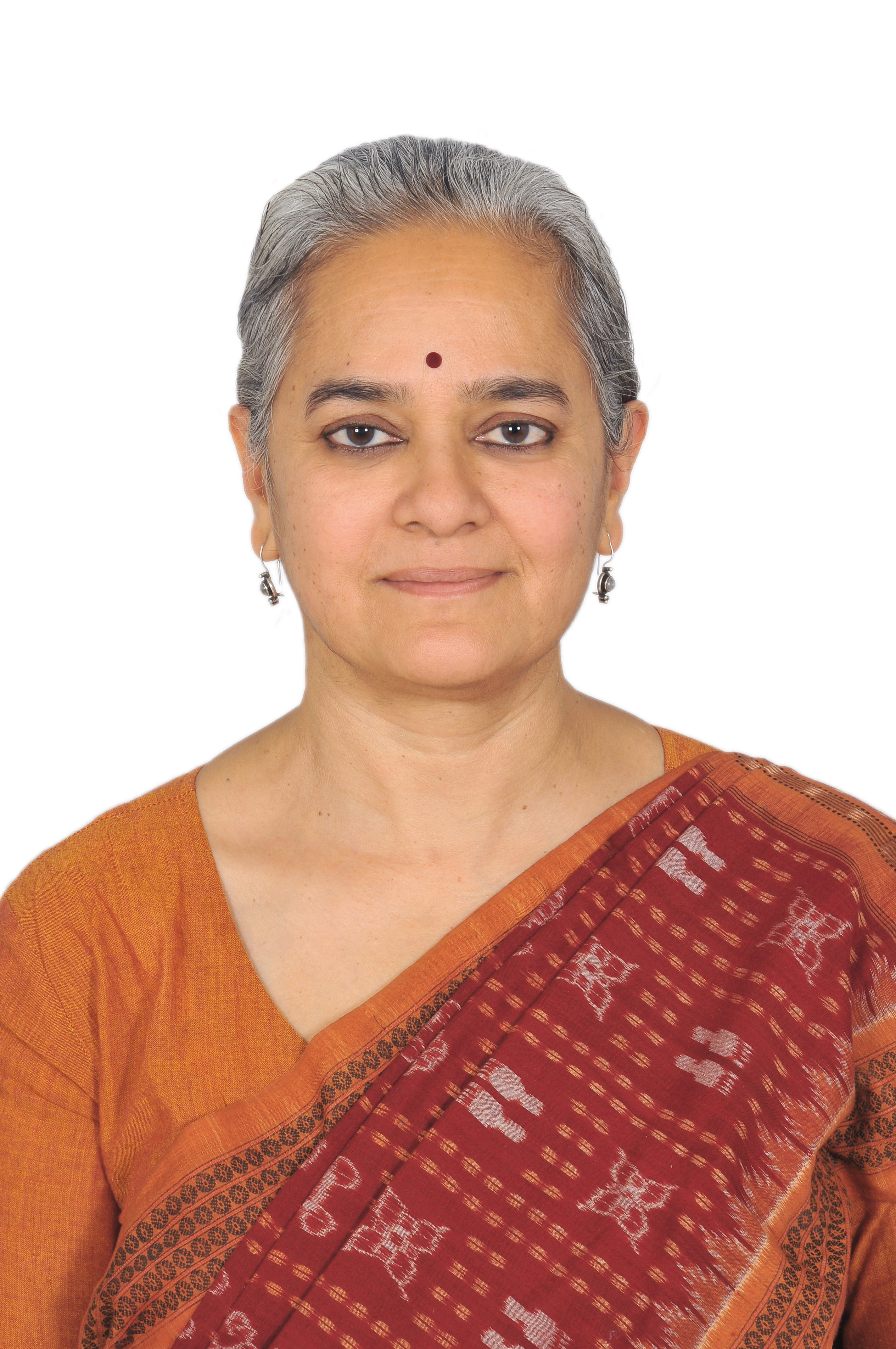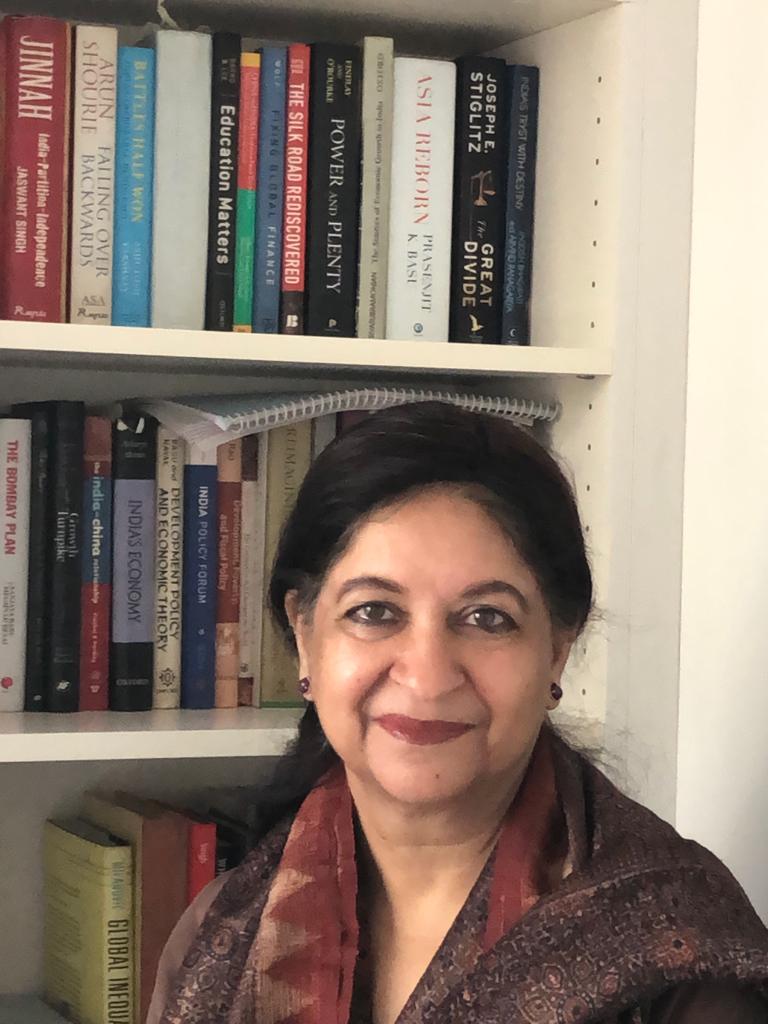EVENTS
Events Calendar
|
Building on the theme of International Women's Day (IWD 2022) "Gender Equality Today for a Sustainable Tomorrow", the Women’s cell at FLAME University invites you to collectively imagine futures that are just, equitable and compassionate. Our focus on the analytical category of "work" is significant given that the pandemic exacerbated the invisibility of women’s work, both paid labor and unpaid care work. Given this context, we are eager to know what debates are important and what actions are needed as India plans a post-pandemic recovery. More generally, we want to ask: how do we 'bargain' for an equitable future? Our three speakers from the world of academia and development focus on the multiple challenges that privileged as well as underprivileged women face in the home and the workplace.
Join us as we celebrate the change-makers who are shifting the axis of this debate.
Women’s Day Event 2022
Ms. Mirai Chatterjee
Women’s Economic Empowerment: Lessons from the Self-Employed Women’s Association (SEWA)
 March 8 | 2.30 to 4.00 PM IST
March 8 | 2.30 to 4.00 PM IST
Prof. Ravinder Kaur
Equal Futures Require Men to Share Women's Unpaid Work Equally! Gendered Roles and Female Labour Force Participation in India
 March 9 | 2.30 to 4.00 PM IST
March 9 | 2.30 to 4.00 PM IST
Prof. Mangala Subramaniam
Gendered Impacts Of Covid: How Can Universities Support Faculty?
 March 10 | 9.00 to 10.30 AM IST
March 10 | 9.00 to 10.30 AM IST
Speakers for Women’s Day Event

Ms. Mirai Chatterjee
Mirai Chatterjee is the Director of the Social Security Team at the Self-Employed Women’s Association, (SEWA). She is also Chairperson of the SEWA Cooperative Federation of 110 women’s primary cooperatives. In addition, she is responsible for SEWA’s health care, child care and insurance programmes. She was Chairperson of the National Insurance VimoSEWA Cooperative Ltd and the Lok Swasthya SEWA Health Cooperative, and is actively involved in both as a board member and founder. She joined SEWA in 1984 and was its General Secretary after its Founder, Ela Bhatt.
Ms Chatterjee serves as Chairperson of the global informal workers and policy-makers network, WIEGO (Women in Informal Employment Globalising and Organising), and on the Boards of several organizations, including the Public Health Foundation of India (PHFI), Save the Children, PRADAN and the Schwab Foundation for social entrepreneurship. She was advisor to the National Commission for Enterprises in the Unorganized Sector and is in the Advisory Group on Community Action of the National Rural Health Mission. She was also a Commissioner in the World Health Organization’s Commission on the Social Determinants of Health. She was a member of the National Advisory Council (NAC), appointed by the Prime Minister of India in 2010. She was conferred the Global Achievement award by the School of Public Health, Johns Hopkins University.
Ms. Chatterjee has a B.A. from Harvard University in History and Science and a Masters from Johns Hopkins University’s School of Public Health, USA.

Prof. Ravinder Kaur
Ravinder Kaur is a Professor of Sociology and Social Anthropology at the Department of Humanities and Social Sciences, Indian Institute of Technology, Delhi and has taught there for the last 25 years. She served as Chair of the Department from July 2015 to February 2018. She has previously taught at the University of Delhi and New York University and has held short-term visiting research positions in several universities abroad. She researches various aspects of gender inequalities, at home and at work; her most recent focus of attention is women in science and technology. She has worked extensively on the issue of adverse sex ratios and their consequences in India and China and has published widely on the subject. Her work in this area spans gender-biased sex selection and its relationship with fertility, education, work, class mobility, crime, and marriage squeeze. Her ethnographic work on bride shortages and long-distance marriage migration in Haryana has been seminal to research in this area.
Her recent research is on “Changing parental attitudes and shifting value of daughters”. She is also the lead researcher on two new projects 1) “Fixing the Leak: Advancing STEM Innovation and Inclusion in India, One Woman Scientist at a Time” beginning February 2022 and 2) “Femtech and the Possibilities, Pitfalls and Politics of Digital Reproductive Health Management in India: Envisioning Better Reproductive Futures”.
She is a founder-member of IGES – Initiative for Gender Equity and Sensitization – IIT Delhi’s gender unit and leads their programs on gender sensitization. She is currently in charge of implementing a major DST pilot project called GATI (Gender Advancement for Transforming Institutions) at IIT Delhi. She is also a recipient of a Teaching Excellence award at IIT Delhi.

Prof. Mangala Subramaniam
Mangala Subramaniam is a Professor, Butler Chair and Director of the Susan Bulkeley Butler Center for Leadership Excellence at Purdue University (U.S.A.). Her research is in the areas of gender (and intersections with race, class, nationality), social movements, and higher education. In her current administrative role, she focuses on providing professional development programs for faculty; educational seminars such as the current work-climate series; and workshops for faculty and other campus constituencies. Notable among her initiatives is the Coaching and Resource Network (CRN) creatively designed as a dyadic model in which full professors advocate for and sponsor assistant and associate professors, particularly faculty of color.
Her work has been extensively featured in podcasts and national higher ed sources such as Diverse Ed, Chronicle of Higher Education, Inside Higher Ed, and was the cover story in an international edition of the Higher Ed Digest. Topics covered include best practices tools for documenting and assessing faculty COVID impact statements and recruitment and retention of faculty of color, among others. She has published over 40 articles and book chapters as well as four books. Her fifth book is a co-edited collection, Dismantling Institutional Whiteness: Emerging Forms of Leadership in Higher Education, forthcoming 2022. She is currently finalizing another co-edited collection tentatively titled, Breaking the Silence: Gender and Institutional Responsibility in Promotion to Full Professor. Critical examination of the criteria for promotion to full professor will also be the topic of her webinar for the National Center for Faculty Development and Diversity (NCFDD), U.S.A. in the summer of 2022. She is the editor of the book series, Navigating Careers in Higher Education (Purdue University Press). For details see www.mangalasubramaniam.com
Event Organizers: Juhi Sidharth, Shalaka Shah, Tannistha Samanta, Garima Rajan, Aileen Blaney, Divya Balan, Smita Chaudhry, Tejashree Thakar & Kasturi Chatterjee

